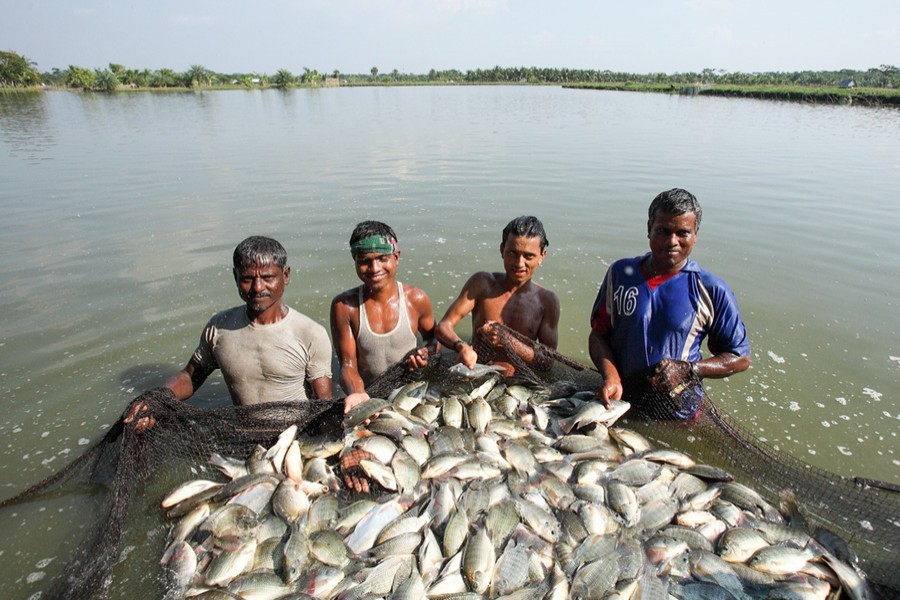
Published :
Updated :

Despite having potentials, the aquaculture sector in Bangladesh has been affected badly in the wake of the pandemic mainly due to the increased cost of fish feed and sluggish demand, according to a study.
The majority of respondents said the supply of fish feed and aquaculture-related goods were disrupted due to restrictions on vehicular movement.
The findings of the study titled 'Opportunities in the aquaculture sector in Bangladesh' were released at a virtual programme recently, said a press release on Friday. LightCastle Partners and Larive International jointly conducted the study during the period between January and March this year with the participation of over 50 people, including fish cultivators and other stakeholders.
The study projected the per capita fish consumption of Bangladesh to grow to 23.1 kilograms per day by 2025 from 21.8 kgs per day in 2019, facilitated by a projected growth in fish production to 5.67 million tonnes by 2024, signifying an annual production growth of 5.2 per cent.
According to the study, 64 per cent farmers said the supply of fish feed, fish related goods and shrimp were disrupted due to irregular movement of vehicles during the pandemic, resulting in disruption of fish production.
Besides, cultivators have been forced to sell their fish at low price as the purchasing power of people decreased, the report said, adding that cost of fish feed increased excessively while production cost increased manifold than the usual period earlier.
The virus outbreak caused immense trouble for the fish market, farms faced increased loss for delayed harvest, markets are still volatile due to repercussion of supply chain disruption, local demand increased, shrimp export plummeted and seed prices went up, the study observed.
Bangladeshi fish farmers produced 4.38 million tonnes of fish in the fiscal year2018-19, the study said. It suggested providing bank loan to fish cultivators, increasing the government incentives and their proper implementation, reducing prices of fish feed, imparting proper training to cultivators, maintaining the supply chain and ensuring smooth market management.
The study identified a lack of quality seeds, poor animal health, low availability of high-quality feed, post-harvest loss and less-developed cold chain facilities as major bottlenecks of the sector. The study also presented opportunities for Dutch stakeholders in the aquaculture sector ranging from facilitating training programs, setting quality and regulatory protocols, expanding use of improved technology, and technical assistance in identification and prevention of diseases.
saif.febd@gmail.com


 For all latest news, follow The Financial Express Google News channel.
For all latest news, follow The Financial Express Google News channel.